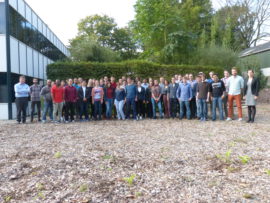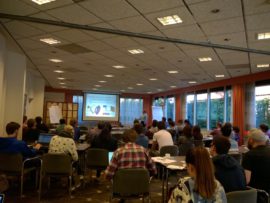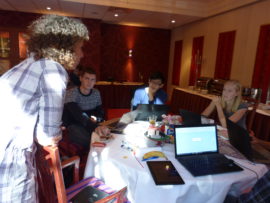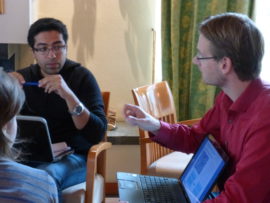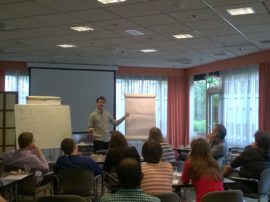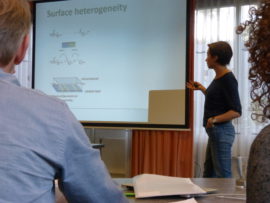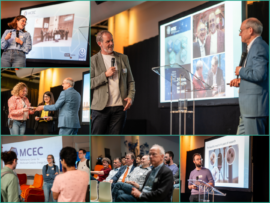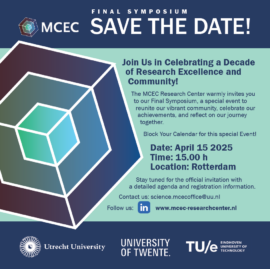MCEC was represented at CHAINS 2016 (December 6, 7 and 8) together with the other Dutch Gravitation programs in the field of chemical sciences:
- The Research Center for Functional Molecular Systems (FMS) aims to gain a deeper understanding of the molecular mechanisms, structures, and chemical processes that lead to living systems.
- The Institute for Chemical Immunology (ICI) brings together Chemistry and Immunology in the new field of Chemical Immunology to diagnose and treat diseases related to immune system failure via new, targeted chemical compounds.
The following MCEC members and PhD students contributed to this event as chair or speaker at several sessions: Ivo Filot, Frank de Groot, Volker Hessel, Jan Philipp Hoffman, Arnout Imhof, Petra de Jongh, Florian Meirer, Celso de Mello Donega, Evgeny Pidko, Roderigh Rohling, Martin Sint-Anneland.
The following MCEC posters where presented:
Robin Broos (TU/e) The effect of surface termination on key reactions for Fischer-Tropsch reaction over iron-carbides
Vetrivel Shanmugam (TU/e) Effect of promotors on Ni/SBA-15 catalysts for steam reforming of poly alcohol in microreactors
Bas Salzmann (student of Robin Geitenbeek, UU) Towards luminescent temperature sensing in catalytic environments using Y203:Eu3+/AI203 complexes
